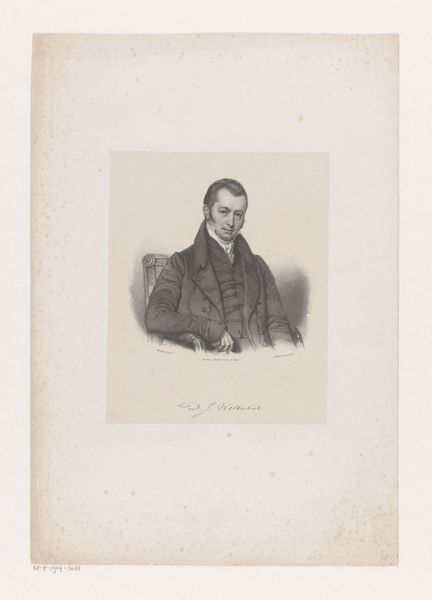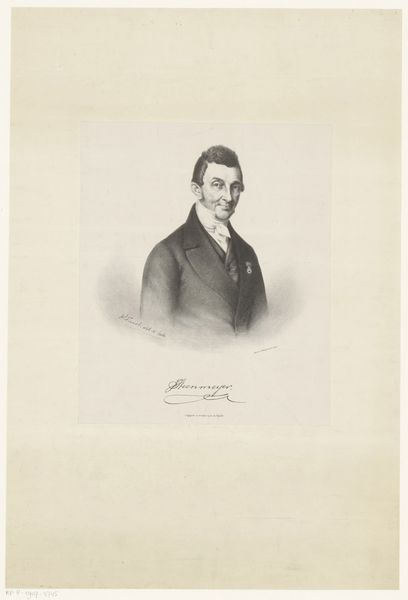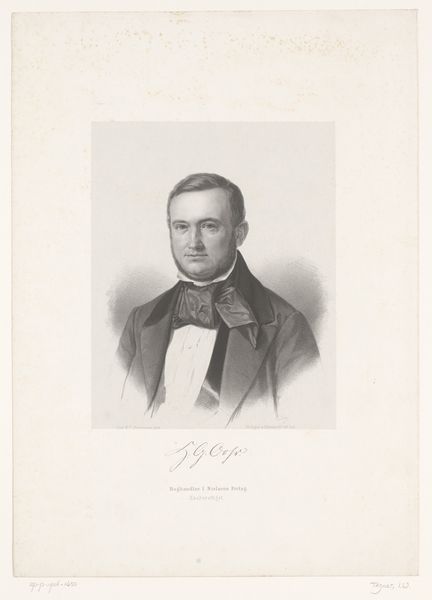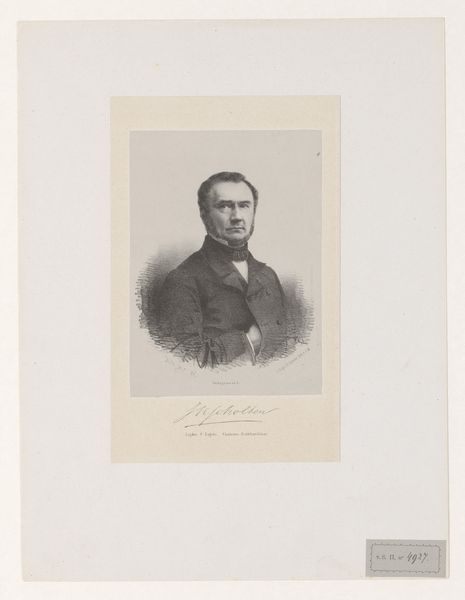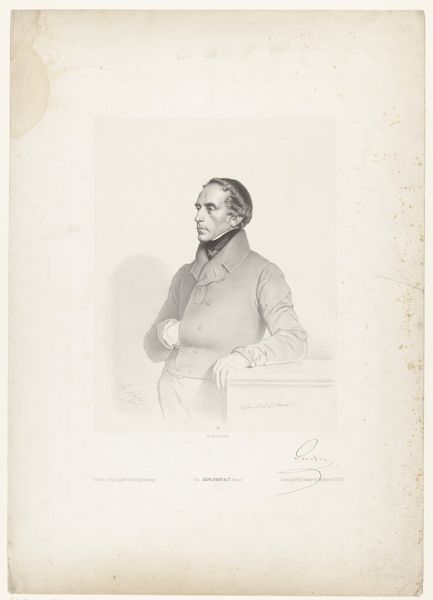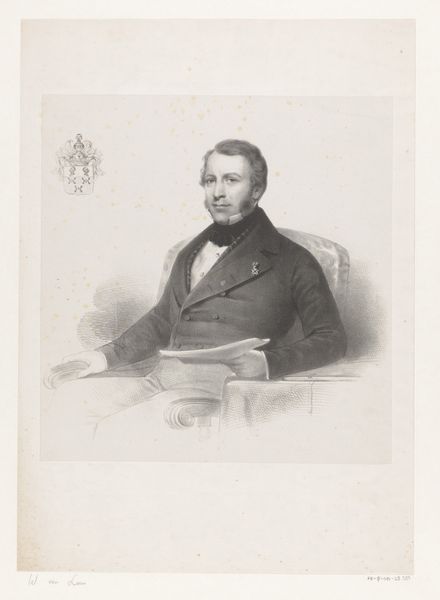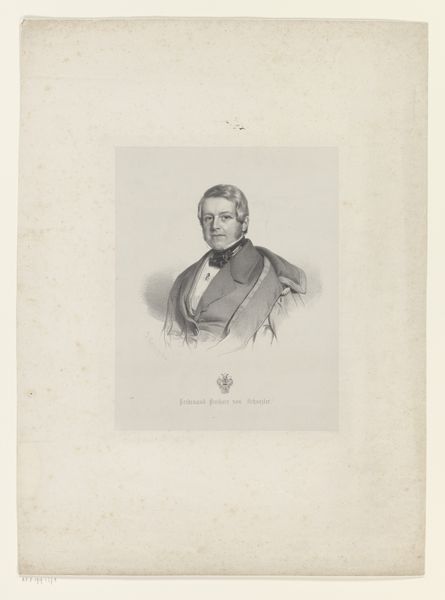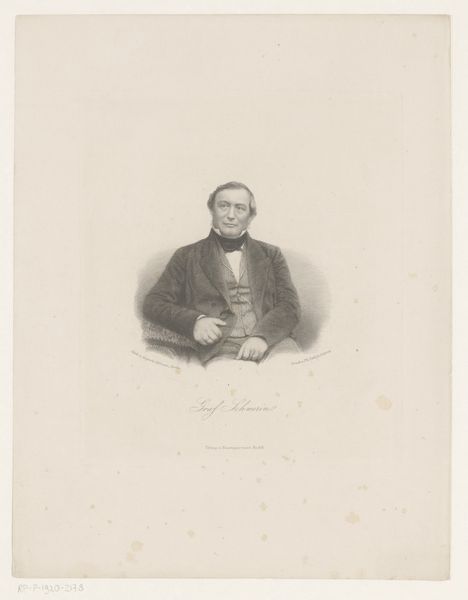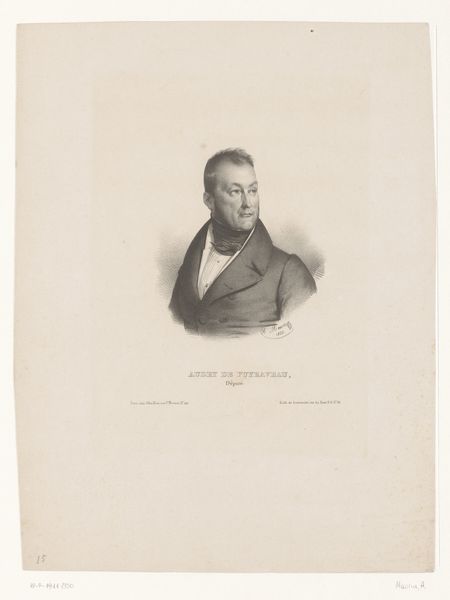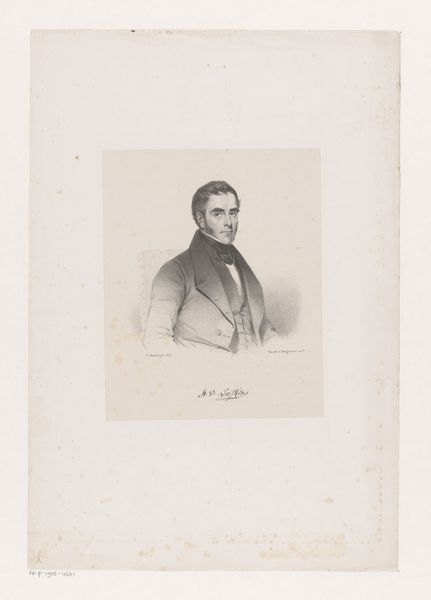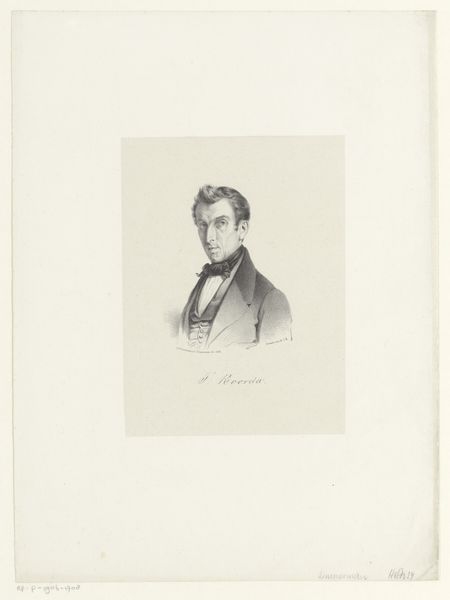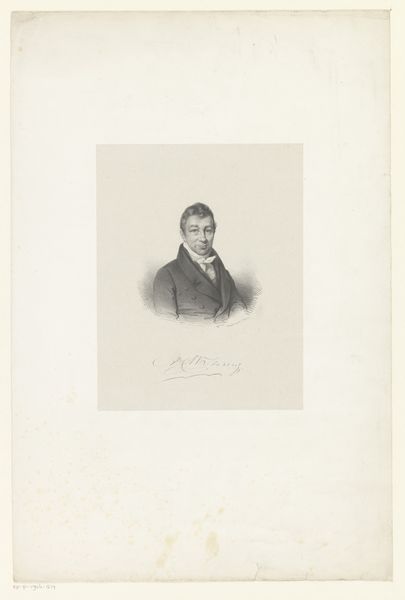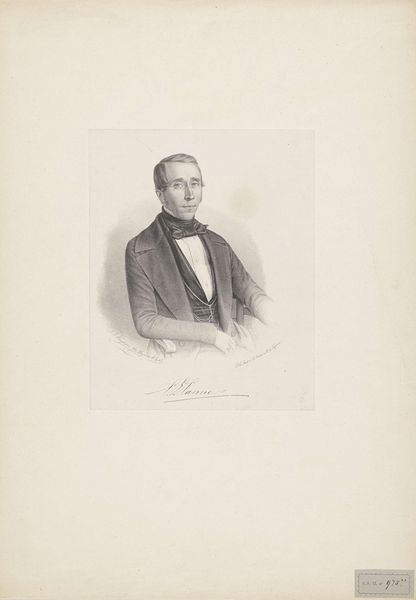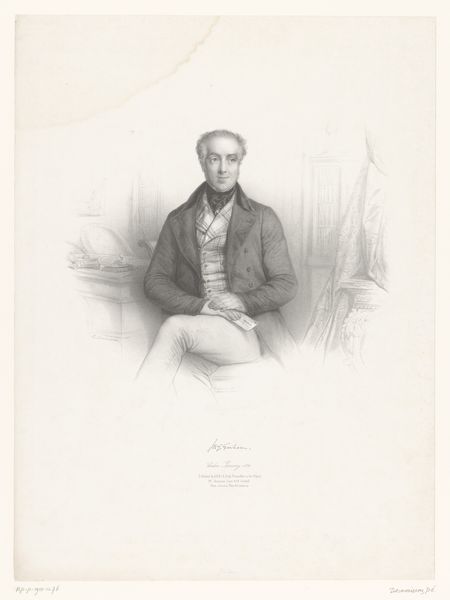
print, graphite, engraving
#
portrait
# print
#
pencil drawing
#
graphite
#
engraving
#
realism
Dimensions: height 376 mm, width 258 mm
Copyright: Rijks Museum: Open Domain
This is a print of Athanase-Charles Coquerel, made by Georges Alexandre Fischer sometime in the mid-19th century. Look closely, and you can see that the image is created from thousands of tiny dots. This is lithography, a process that democratized image-making. Unlike traditional engravings, which required immense skill, lithography allowed for relatively quick and inexpensive reproduction. A design is drawn on a stone or metal plate with a greasy crayon, then treated with acid. When ink is applied, it adheres only to the drawn areas. The image can then be transferred to paper. The effect is somewhere between a drawing and a painting. It is perfect for portraiture. Lithography exploded in popularity during the 1800s, fueling the growth of mass media and advertising. It brought images to a wider audience, and created new opportunities for artists like Fischer. The result is a fascinating intersection of art, technology, and social change. It shows how printmaking democratized image production in ways that continue to resonate today.
Comments
No comments
Be the first to comment and join the conversation on the ultimate creative platform.
